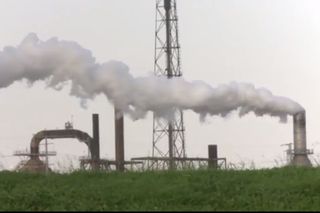
Port Arthur, Texas, and Its Fight Against Keystone (Op-Ed)

Rocky Kistner has been a reporter and video producer for more than 20 years, working for news organizations including ABC News, the Center for Investigative Reporting, American Public Media, and PBS Frontline. This article first appeared in the Natural Resources Defense Council (NRDC) publication OnEarth. Kistner contributed this article to Live Science's Expert Voices: Op-Ed & Insights.
News reports about Keystone XL often mention that, if approved, the proposed tar-sands oil pipeline would carry heavy Canadian crude from northern Alberta to refineries on the Gulf Coast. Sometimes those reports even mention the name of the town where those refineries are located: Port Arthur, Texas.
But Port Arthur is far more than just a name on the map. As Ted Genoways reported for OnEarth last year (in a story that was awarded the prestigious James Aronson Award for Social Justice Journalism), it is home to a low-income, largely African-American community surrounded by smoke-belching oil refineries and chemical plants, where noxious odors mix freely with the salt-tinged air. It's also home to some of the highest cancer rates and pollution-related health problems in the country.
In this video by Reports from the Edge, Port Arthur community activist Hilton Kelley (one of the main subjects of Genoways's story) describes how his community's health and well-being have been sacrificed for the nation's oil needs — a problem that will only get worse if Keystone XL is built.
Follow Kistner @rockyatnrdc. This article is adapted from one that appeared in the NRDC publication OnEarth. Follow all of the Expert Voices issues and debates — and become part of the discussion — on Facebook, Twitter and Google +. The views expressed are those of the author and do not necessarily reflect the views of the publisher. This version of the article was originally published on Live Science.
Sign up for the Live Science daily newsletter now
Get the world’s most fascinating discoveries delivered straight to your inbox.
Most Popular

